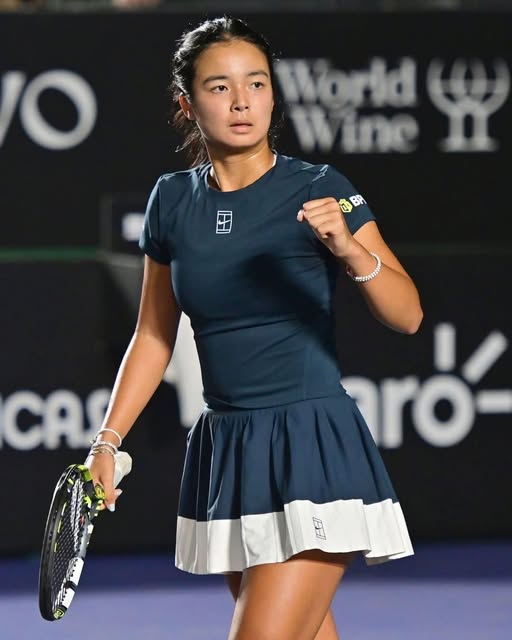Every time Alex Eala steps onto a tennis court wearing the colors of the Philippine flag, fans proudly call her “the face of Filipino tennis.” She’s young, fearless, and already making waves internationally. But not everyone agrees that Alex truly represents Filipino tennis — and that’s where the debate begins.
In every Facebook fan group, sports thread, and comment section, this question keeps coming back: Is Alex Eala really representing Filipino tennis, or is she more a product of Spain’s elite training system?
Supporters have no doubts. They see Alex as a symbol of Filipino potential — proof that someone from the Philippines can compete at the same level as players from Europe and the U.S. To them, her victories are national victories. Every time she raises the flag after a match, it’s not just about her — it’s about millions of Filipinos who rarely see their country shine in a sport dominated by others.
But critics raise a different point. They argue that Alex’s tennis journey didn’t entirely grow out of the Philippines. Her training base, coaches, and development all happened in Spain, where she has access to world-class facilities and mentorship unavailable at home. Some say her success represents a system outside the Philippines not Filipino tennis itself. That’s the heart of the argument: is Alex’s rise proof of local strength or of what happens when a Filipino leaves to train abroad?
The truth might sit somewhere in the middle. Alex Eala’s story is both global and local. She may have trained in Spain, but her roots, values, and identity remain deeply Filipino. She represents a generation that doesn’t have to choose between national pride and international opportunity. Instead, she shows that global exposure can still bring glory to the homeland.
What keeps the debate alive is emotion. Filipinos love claiming their heroes and they also love holding them accountable. Every success Alex earns is celebrated; every loss sparks analysis. People care because she’s not just a player she’s carrying national expectations. It’s not easy representing a country where resources for tennis are limited but hopes are sky-high.
Alex herself has said that she’s proud to represent the Philippines. She has carried the flag at tournaments, spoken about inspiring young athletes back home, and shown consistent gratitude to Filipino supporters. That’s what makes the criticism sting: some fans still feel disconnected, arguing that real representation should come with more involvement in local tennis development.
Still, even with all the debate, one thing is undeniable — Alex Eala has made the world notice the Philippines in a sport where the country rarely appears. Whether trained abroad or not, she’s using her platform to shine a light on Filipino talent. And perhaps that’s what real representation is about: not where you train, but who you play for.
The national debate will continue, and that’s okay. It means people care. Every time fans argue about whether Alex Eala truly represents Filipino tennis, they’re proving her impact — because no one debates those who don’t matter.


